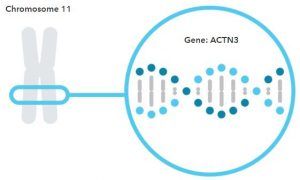Since the start of Olympics in 776 BC, running has always been a remarkable event in the world of sport. This Rio 2016 is no exception and set to be another epic feast for running fans. The fundamental dimension of the Olympics is all about “Citius, Altius, Fortius” which translates to “Faster, Higher, stronger” and running itself abides by the same principle.
In the past, stories of sprinting successes by people of Jamaican heritage sparked interest in the genetic advantage that Jamaicans and people with West African ancestry might have, especially when it comes to raw muscle power.
The adaptations of the human body and its role in Olympics
All of the diversity that is visible today among the 7 billion people on earth is the story of human genetic adaptation to their environment. For example, if the ancestors of certain people lived in hot and humid regions with significant sun exposure, they will have stronger skin pigmentation- which protects them from cancer causing UV rays. An example that is relevant to sports performance is that of ancestors who lived at higher altitudes above sea level. These places have lower levels of oxygen than what is found at sea level. As a result, their bodies have adaptations that make them efficient at extracting more oxygen out of the air they breath. All other things being equal, a person from higher altitude will have an advantage over someone from a lower altitude. Similarly, various other adaptations can be seen that offer specific advantages in various aspects of life. Of course, adaptations are only part of the story. The sheer human will to train and outcompete is the other part.
Role of ACTN3 gene

ACTN3 gene is the most widely studied sports performance related gene. The ACTN3 gene encodes instructions for making a specific muscle protein, ?-actinin-3, found exclusively in fast twitch muscle fibres. This protein is essential for greater strength & to protect against muscle damage which provides the benefits needed in speed or power based activity, such as sprinting or weight lifting.
There are different versions of ACTN3 gene and which version you carry determines how much of the alpha-actinin-3 protein you produce in your fast twitch muscle fibres. Some people have a fully functional version that produces lot of alpha- actinin 3, commonly called the R allele. This is associated with a boost in muscle strength and sprint performance. And some people have a non- working version of the gene, commonly called the X allele that prevents it from making this protein and such people lack this protein in their muscles. Lack of this protein does not cause any harm to the body, but it does affect the level of athletic performance. It is probably close to impossible for someone who lacks this protein to reach the elite levels of sports performance especially in power based activities, except for very rare cases.
Studies have indicated that people lacking the R allele of ACTN3 may have an advantage in endurance based sports. Such people also seem to have higher proportion of slow twitch muscle fibres and reduced fatigue which is advantageous in endurance performance.
Want to know if you have the “gene for speed?” Xcode’s fitness genetics test can tell you what versions of the ACTN3 gene you have in your DNA. You can also learn about how your genes may influence other traits, including your risk for certain diseases.





